Home / News / Industry News / Application of CNC milling aluminum parts in mold manufacturing industry
Application of CNC milling aluminum parts in mold manufacturing industry
As modern manufacturing demands ever-increasing product quality and production efficiency, the mold manufacturing industry is constantly exploring efficient and precise machining technologies. As an advanced machining method, CNC milling, with its high precision, high efficiency, and automation advantages, has become an indispensable and important technical tool in mold manufacturing. CNC milling aluminum parts, in particular, has demonstrated widespread application and unique value within the mold manufacturing industry. This article will delve into the specific applications, advantages, and future development trends of CNC milling aluminum parts in the mold manufacturing industry.
1. The Mold Manufacturing Industry's Demand for Processing Technology
Molds are essential tools used to form and process products in industrial production and are widely used in various fields, including automotive, electronics, home appliances, and aerospace. Mold quality directly impacts the dimensional accuracy, surface quality, and service life of the finished product. As product designs become increasingly complex, mold structures are also becoming more diverse and demanding in terms of precision. This places higher demands on mold manufacturing, primarily including:
High precision: Mold parts must achieve micron-level machining accuracy to ensure dimensional consistency in the molded product.
Complex structure machining capabilities: Molds with complex and diverse shapes, numerous curved surfaces, and numerous details require machining equipment capable of precisely completing complex contours.
High Efficiency: The market demands shorter mold delivery times, necessitating improved processing efficiency to meet rapid response times.
Material Diversity: Mold materials include steel, aluminum, copper, and other materials, requiring processing equipment to accommodate a wide range of materials.
Against this backdrop, the application of CNC milling aluminum parts is particularly important.
2. Advantages of CNC milling aluminum parts
Aluminum and aluminum alloys are widely used in mold manufacturing due to their low density, excellent cutting performance, rapid heat conduction, and reasonable cost. Using CNC milling technology to process aluminum parts offers the following distinct advantages:
High Machining Precision
CNC milling machines, combined with advanced CNC systems and cutting tools, can achieve positioning and repeatability accuracies up to micron levels, meeting the high-precision requirements of mold parts.
Excellent Machining Efficiency
Aluminum is relatively soft, resulting in low cutting resistance, long tool life, and high machining speeds. CNC milling offers a high degree of automation and continuous operation, significantly improving production efficiency.
Strong Complex Shape Machining Capabilities
Three-and five-axis CNC milling machines enable high-precision machining of complex curved surfaces, deep cavities, and detailed structures, meeting the diverse demands of mold design. Excellent Surface Quality
Aluminum parts produced by CNC milling have a smooth surface, reducing subsequent grinding and polishing steps and improving overall production efficiency.
Reduced Material Waste
CNC milling uses cutting to precisely remove excess material, resulting in lower material costs compared to traditional processes.
3. Applications of CNC Milled Aluminum Parts in Mold Manufacturing
Injection Mold Processing
In injection molds, aluminum parts are often used to create cores, cavities, and auxiliary mold structures. CNC milling enables high-precision cavity machining, ensuring stable dimensions and a smooth surface finish. Aluminum molds offer fast thermal conductivity and shortened molding cycles, making them ideal for small-batch rapid prototyping and trial production.
Die-Casting Mold Processing
Aluminum alloy molds are widely used in the die-casting industry, particularly for casting low-melting-point alloys. CNC milling aluminum parts can produce complex cavity structures, ensuring dimensional accuracy and surface quality of castings while reducing mold maintenance costs.
Rapid Prototyping Molds
During new product development and rapid prototyping, aluminum molds are the preferred material due to their short processing cycles and low costs. Through CNC milling, molds can be completed in just a few days, enabling companies to quickly respond to market demand.
Mold Parts and Auxiliary Component Processing
In addition to the core cavity and core, molds also contain a large number of aluminum parts, such as locating pin holders, support plates, and guide pin holders. CNC milling can efficiently process these parts, achieving high-precision assembly of the entire mold structure.
4. Future Development Trends of CNC Milling Aluminum Parts in the Mold Manufacturing Industry
Integrating Intelligent Manufacturing with Automation
Using intelligent CNC systems and technologies such as automatic tool changing and automatic loading and unloading, unmanned processing can be further achieved, improving the flexibility and responsiveness of mold production.
Promoting Green Manufacturing Concepts
CNC milling processes that use environmentally friendly coolants and reduce material waste and energy consumption are becoming industry trends.
Developing New Aluminum Alloys
With the continuous emergence of new high-performance aluminum alloys, CNC milling processes will continue to be optimized to adapt to changes in material properties and higher mold performance requirements.
CNC milling aluminum parts, with its high precision, high efficiency, and excellent processing performance, has become an irreplaceable core technology in the mold manufacturing industry. CNC milling aluminum parts plays a vital role in mold cavity and core machining, rapid prototyping, and the manufacture of functional components. With the advancement of intelligent manufacturing and new materials technologies, the application of CNC milling aluminum parts in mold manufacturing will become even more extensive and in-depth, providing strong technical support for the upgrading and transformation of the manufacturing industry.
As a professional CNC aluminum milling manufacturer, we specialize in providing high-precision and efficient aluminum processing solutions for the mold manufacturing industry. Leveraging advanced multi-axis CNC milling machines and sophisticated CAD/CAM programming techniques, we are able to process complex cavities, precision cores, and various auxiliary mold components, ensuring precise dimensions and a smooth surface finish for each aluminum part. Our aluminum processing technology balances speed and precision, utilizing optimized tool paths and cutting parameters to minimize machining distortion and burrs, while also maximizing tool life and efficiency. Whether it's injection molds, die-casting molds, or rapid prototyping molds, we offer customized solutions to help customers shorten production cycles, reduce manufacturing costs, and ensure the long-term stability and reliability of their molds. With rich machining experience and a complete quality management system, we are committed to becoming a reliable CNC aluminum milling partner for our customers and promoting innovation and development in the mold manufacturing industry.
Hot Product
Hot Product
-
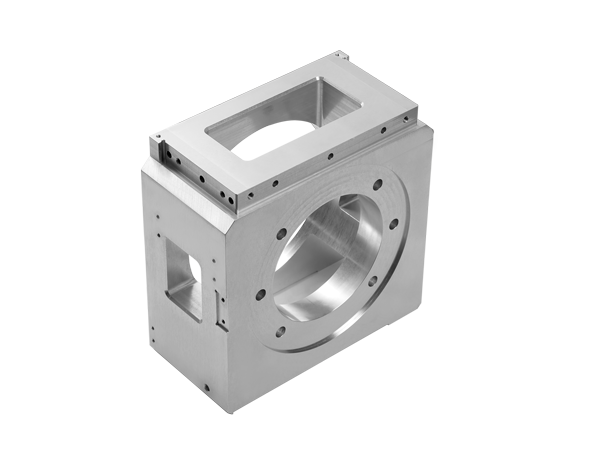 Bearing flange for medical equipmentRead moreBearing flange for medical equipment
Bearing flange for medical equipmentRead moreBearing flange for medical equipment -
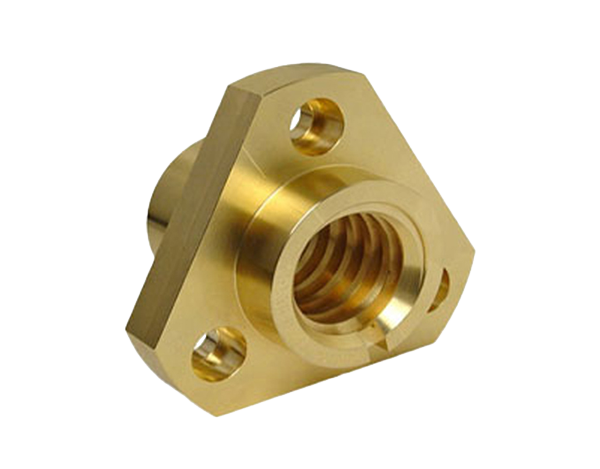 Turning and milling composite precision brass rod sleeveRead moreTurning and milling composite precision brass rod sleeve
Turning and milling composite precision brass rod sleeveRead moreTurning and milling composite precision brass rod sleeve -
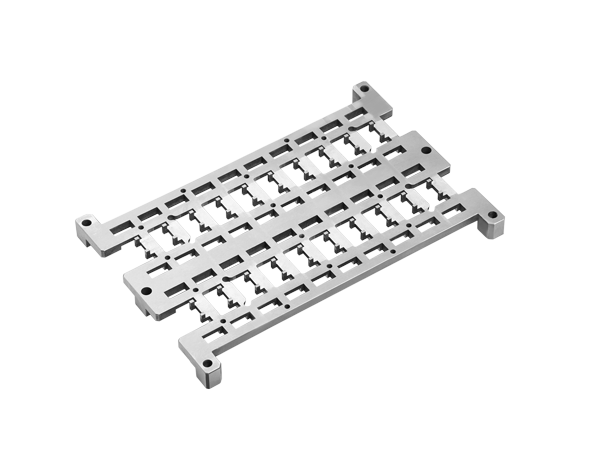 Precision milling of joint product toolingRead morePrecision milling of joint product tooling
Precision milling of joint product toolingRead morePrecision milling of joint product tooling -
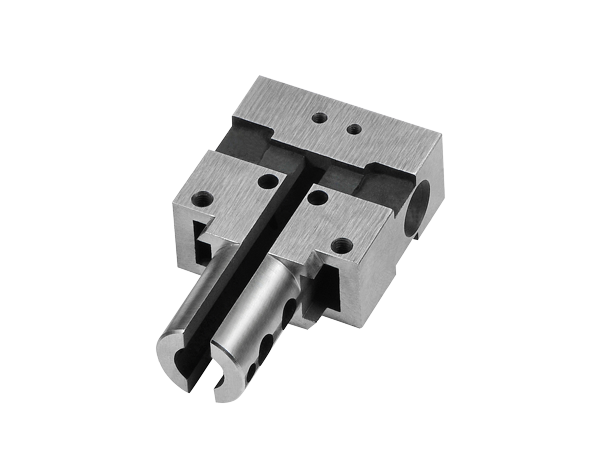 Automation equipment precision stainless steel suction nozzleRead moreAutomation equipment precision stainless steel suction nozzle
Automation equipment precision stainless steel suction nozzleRead moreAutomation equipment precision stainless steel suction nozzle -
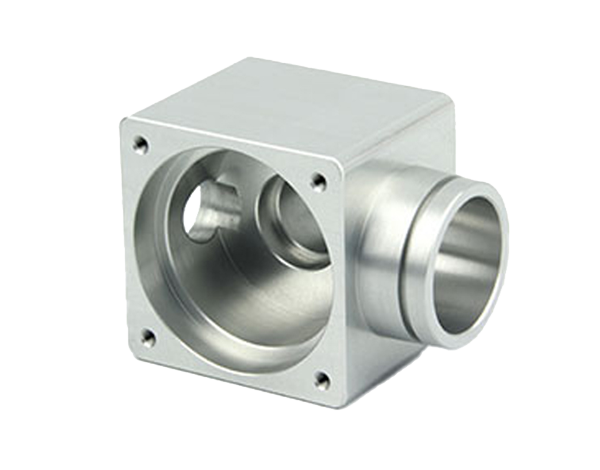 CNC titanium alloy precision square parts processingRead moreCNC titanium alloy precision square parts processing
CNC titanium alloy precision square parts processingRead moreCNC titanium alloy precision square parts processing -
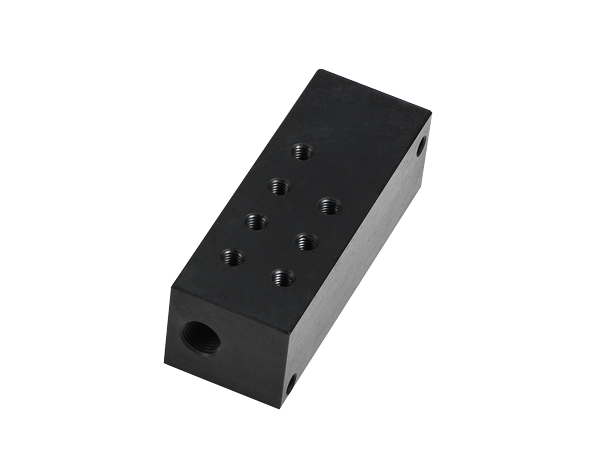 Medical device connector bracketRead moreMedical device connector bracket
Medical device connector bracketRead moreMedical device connector bracket
